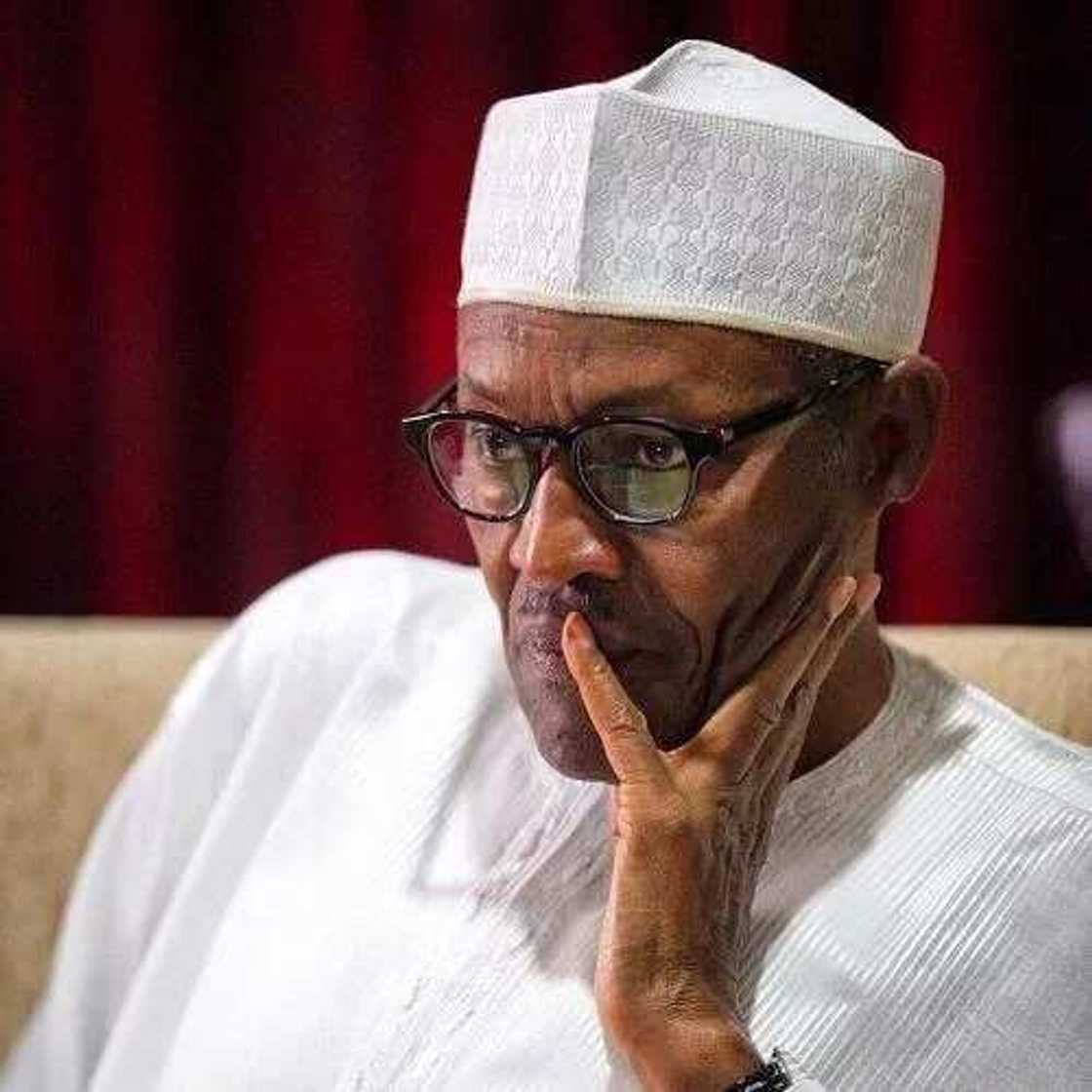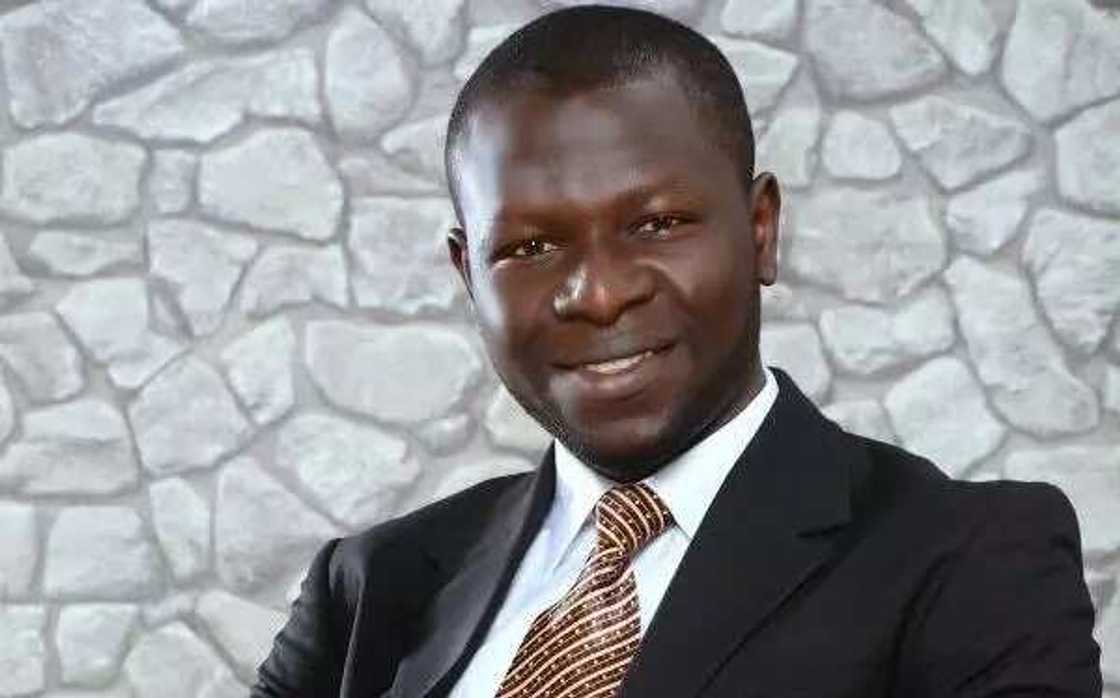Beyond President Buhari And The War On Corruption
Editor’s note: As Nigeria keeps battling to ensure that the menace of corruption is kicked out by the President Muhammadu Buhari-led administration, many political and socio-cultural analysts have not relented in giving a helping hand to proffer remedy to the country’s anomaly. Ebuka Onyekwelu, Legit.ng’s contributor, has also come up with questions that will make many wondering why government officials embark on stealing public funds. For Onyekwelu, fixing Nigeria requires structural, cultural and behavioural transition on the part of all Nigerians if possible, in terms of attitude to every citizen individually and collectively.

If you have ever taken time to read "The Trouble with Nigeria," authored by the late Chinua Achebe, you would think the book was written just last year. The embedded corruption in Nigeria and the general confusion described in the book is just as though Nigeria has been on a spot, probably since independence. Glaringly, the country has not made remarkable progress in terms of the character of the nation.
It is not surprising that over thirty years that the book was published, the nation still struggles with leadership and marred by corruption. In fact corruption in Nigeria has attained a level of sophistication and has become deadlier and more sundry than it had been. It is therefore a very welcomed development that President Muhammadu Buhari is focusing on cubing corruption or in his words “killing corruption before it kills Nigeria”.
To fully understand what corruption has done to Nigeria one has to appreciate the fact that as at nine years ago, the former EFCC chairman, Nuhu Ribadu, remarked that $220 billion was stolen by past Nigerian leaders. This amount since then may have almost doubled the said stolen money.
Corruption at the moment
But that is not the main concern. The amount only serves to offer some insight into the real cost of corruption in Nigeria. For instance, during Olusegun Obasanjo’s eight years as president, Nigeria earned $223 billion. This was two and a half times the amount earned over the previous eight years. If of course logic proves to be true in this case, Nigeria under former presidents Umaru Yar’Adua and Goodluck Jonathan earned nothing less than $557 billion between 2007 and 2015.
To imagine that a country which has earned such amount of money is struggling to pay workers’ salary is just completely awestruck, and perhaps one of the wonders of 21 century made possible by stealing of public money. Thus, without rigorous effort to remind us that many people who died in Nigeria these past years would not have died without further stressing on the fact that our lives would have been far better than the way it is if not for corruption. We can simply establish that Nigeria has become more dangerously corrupt than as it were.
[article_adwert]
Therefore, every effort at killing corruption in Nigeria is one in the right direction which all well meaning Nigerians must appreciate. For the sake of all that is true, even if we are able to contain corruption, the country will change for good. In other words, we don’t need to literally kill corruption in Nigeria, but if corruption is contained in Nigeria, the nation will be great.
The rate at which our leaders steal our collective wealth and stash it away suggests a deeper problem that needs a more coordinated programme of action beyond punishing corrupt officials and recovering stolen funds. Yes, corrupt officials found to be guilty should be punished, and the stolen monies returned to the government.
But there is more to why leaders steal public money. Could it be on the basis that they are just corrupt and greedy? It is a serious concern on what could be responsible for this official embezzlement. How it could be handled from its roots is anyone’s guess. Public office holders steal public money for several and different reasons personal to them.
The Nigerian people and self-interest
In any case, this may sound hard or too far but there is something wrong with us as a people, there is a culture of purposelessness, certain general confusion, identity crisis and mass irresponsibility that have attained a level of integration in our society. The same reason a Nigerian driver drives as though he or she is the only one using the road. The same reason a Nigerian carries on with his or her activities without consideration for their neighbour’s comfort. The same reason we are unpatriotic, it is for the reason that our leaders steal our money. No, we are like that, we are not a people that care about the other before we undertake any venture.
In Nigeria, the self is supreme, self-interest is all and it is the self or nothing else. There is no major difference between Nigerian leaders who steal billions of public funds and other Nigerians who exploit fellow Nigerians in very many ways, who violate the other fellow’s right to live happily. So you see, if President Buhari succeeds in the war against corruption and the dangerous virus is finally killed or contained, that on its own will not transform Nigeria into a society of orderliness and goodwill.
If in four or eight years, President Buhari and the All Progressives Congress succeed in dealing with corruption, what happens thereafter? Jerry Rawlings’s first adventure in Ghana’s leadership at ensuring sanity in that country quickly comes to mind. Nigeria may not be as fortunate though. The implication of isolating corruption as peradventure, Nigeria’s only problem is that the solution that will emerge if the war is won may not be sustained. The problem of Nigeria is deep, it is not enough to hunt down public thieves and get our money back. To fix Nigeria therefore, there is the need for structural, cultural and behavioural transition on the part of all or most Nigerians in terms of our attitude to fellow citizens individually and then collectively; this will directly impact our society and institutions. President Buhari and the government should focus on that too.

Ebuka Onyekwelu is a political scientist. He is a public affairs analyst and activist with concerted interest in Africa’s crisis of development and leadership.
The views expressed in this article are author’s own and do not necessarily represent the editorial policy of Legit.ng.
Your own opinion articles are welcome at info@naij.com — drop an email telling us what you want to write about and why. More details in Legit.ng’s step-by-step guide for guest contributors.
We’re ready to trade your news for our money: submit news and photo reports from your area using our Citizen Journalism App.
Contact us if you have any feedback, suggestions, complaints or compliments. We are also available on Facebook and Twitter. Subscribe to Legit.ng Opinion page!
Source: Legit.ng

